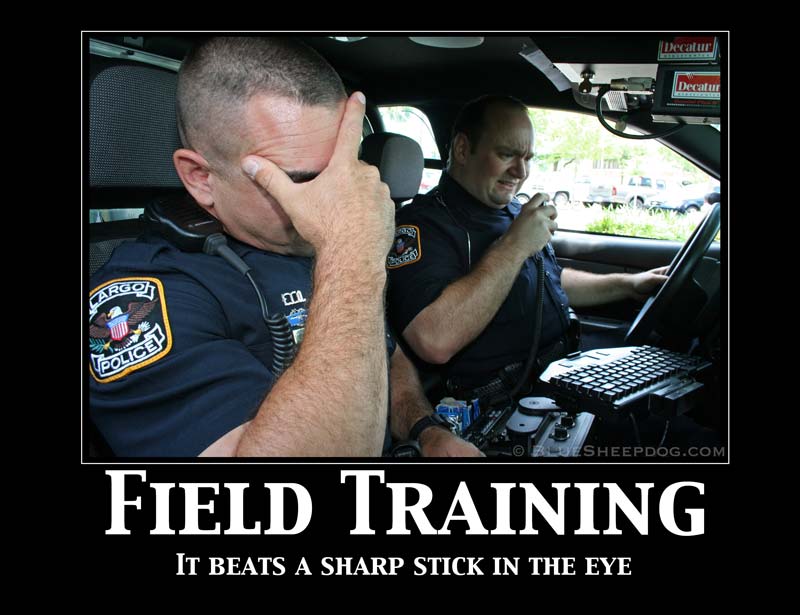
Every field training officer (FTO) has at least one: a story about a rookie who was so awful that he nearly put the FTO in an early grave from the stress of having to train him.
Some of us have many such stories. The funny thing is that many of the stories not only refer to officers who are still employed by the agency, but also people we now consider friends.
The gruesome stories about the incompetent recruits who turned out to be good cops prove that a police FTO can really help a new officer become something special. Experienced training officers have a bag of tricks and ideas they can rely on to help coax great officers out of the lumps called recruits who show up every now and then.
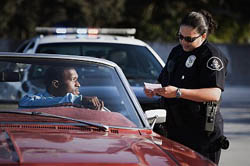
Through the years, I have had my fair share of trainees. No recruit shows up performing at the level of a solo officer. All rookies have varying strengths and weaknesses. However, I have found some problems seem to occur frequently: spelling and grammar, navigation, fear, radio codes and DUI investigations.
The recruit can overcome each of these problem areas, but success often requires special effort from the trainer. I have developed strategies for addressing those deficiencies and will share the FTO training tips with you here.
Fear
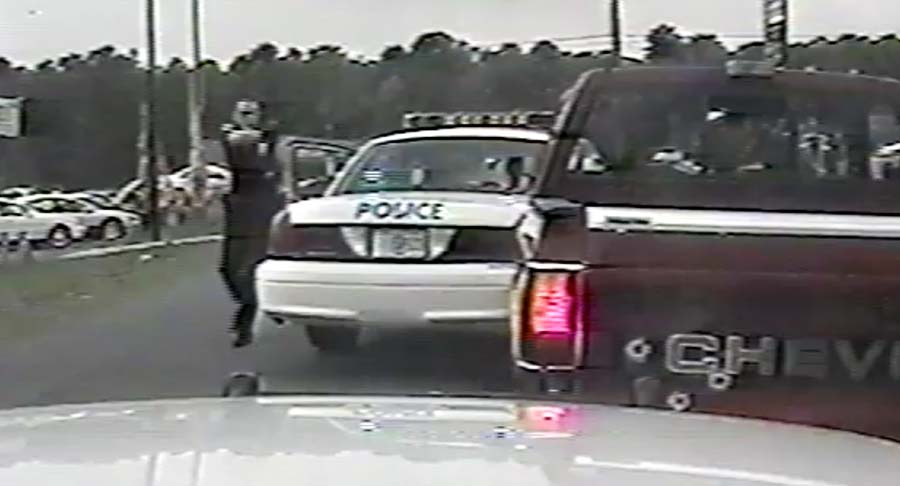
Fear is a perfectly natural and understandable emotion a recruit officer will experience when responding to high-risk calls or dealing with hostile people. How he (or she) performs while experiencing fear can make the difference between becoming a career cop or just another rookie washout.
Recruit performance in the face of hostility will frequently improve with experience. It is for this reason that the FTO should seek out the “hot” calls. The role of the FTO is to guide him through this adaptive process, ensuring that the recruit maintains officer safety and makes sound decisions under stress.
Unfortunately, some people seem to be overwhelmed with fear and are unable to perform in, or react rationally to stressful situations. Sometimes, additional exposure to hostility worsens the problem rather than improves it. What can an FTO do with this recruit?
Confidence and Training
Many times, a recruit will experience fear due to a lack of confidence in his (or her) ability to handle the situation. It is important to identify the areas in which the recruit officer needs more training and to train up those skills.
For example, a recruit who is timid in the face of a belligerent drunk may not have any confidence in his defensive tactics skills. With this recruit, it would be very important to get him on the mats to build both skill and confidence – especially skills to resist a gun grab.
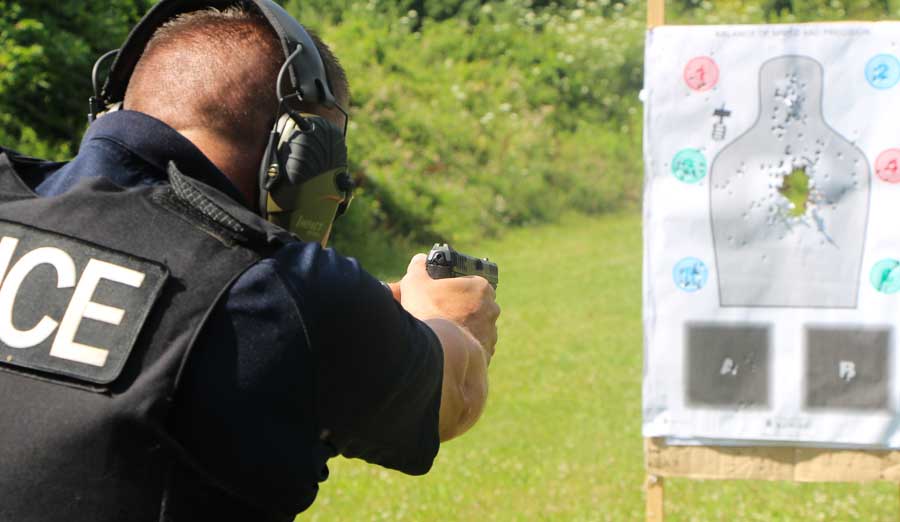
Many officers – both new and veteran – worry about winning a gunfight. Part of this is training on the range, but much of it is understanding when to use deadly force and how to set yourself up for prevailing in the worst of circumstances. Role-playing (below) is a good way to practice these skills in a controlled environment.
If your recruit isn’t confident in his firearms skills, get with a department instructor for extra training time. While I do not think equipment is a good replacement for skill, having the right equipment is absolutely necessary. Hopefully, your agency allows backup guns. If they do, make sure your recruit is trained properly with it.
Role-playing
Role-playing scenarios can frequently help a recruit officer build confidence in decision-making and use of force. It is critical that role-playing allows a recruit officer to successfully handle the call when they make reasonable decisions. The point of role-playing scenarios is to reinforce good judgment and build confidence. Scenario training should never be used as some form of hazing or punishment.
Role-playing should be done in a safe environment. No real weapons (gun, baton, etc.) should be allowed in the training area. Too many officers have been killed in training due to guns which were believed to be unloaded.
Open Dialogue
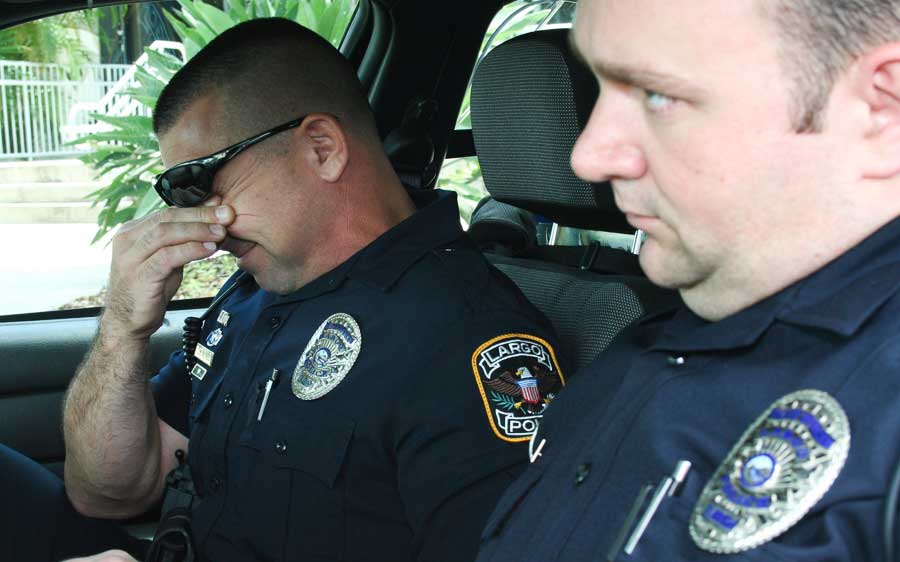
Fear is a mental stumbling block and, sometimes, the roots of the fear are not easily discerned. Talking frankly with the recruit can often be the best method of finding why the recruit officer is having problems dealing with fear and stress. Have the recruit officer evaluate himself and describe what he is feeling and thinking when he encounters problems. Frequently, this alone will give you all of the information you need to work out a plan for improving his performance.
An FTO should explain to the recruit that fear is a perfectly natural reaction to danger. The reaction is an innate warning alarm which humans have to alert us to danger. Fear in and of itself is not bad. It is how we react which is good or bad.
Orientation and Navigation
Even for the recruit who is familiar with your jurisdiction, seeing it as a cop is a whole new experience. Most people move through life without consciously knowing where they are. A recruit officer is suddenly expected to know where he (or she) is at every moment and to know how to get to other locations using the quickest routes.
For some people, navigation and orientation are as natural as breathing. For others, it doesn’t come as easily. Even though orientation seems to be a more common problem for recruits, it is also one which is easy to correct in most new officers.
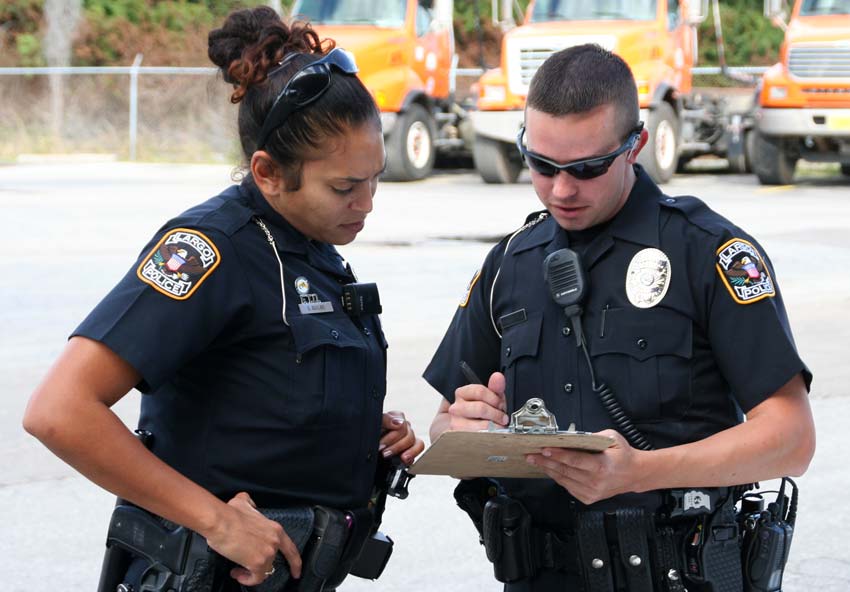
Where Are We?
Constant verbal quizzing of the recruit while on patrol will force the new officer to make a habit of watching street signs and learning block numbering. Verbal testing can be as simple as asking, “Where are we?”
If you need to stress the importance of knowing your location, you can stage a simple exercise in which you tell the recruit to stop the car immediately (preferably not in the middle of a busy highway). Tell the recruit he has just been ambushed and shot. Then, ask where he is.
I have used this technique with a great deal of animation and a voice which progressively gets louder. I generally describe how blood is running out of their chest and they are close to passing out. I then count down five seconds to see if they can give me their location. This can add stress and drive home the importance of orientation.
Maps
Computer maps are great. However, from my experience, many recruits seem to learn the streets better when they use old-fashioned map books. Instead of seeing the blinking arrow pointing to the destination on a computer screen, the recruit has to puzzle out where the target address is and then figure out how to get there.
Radio Codes
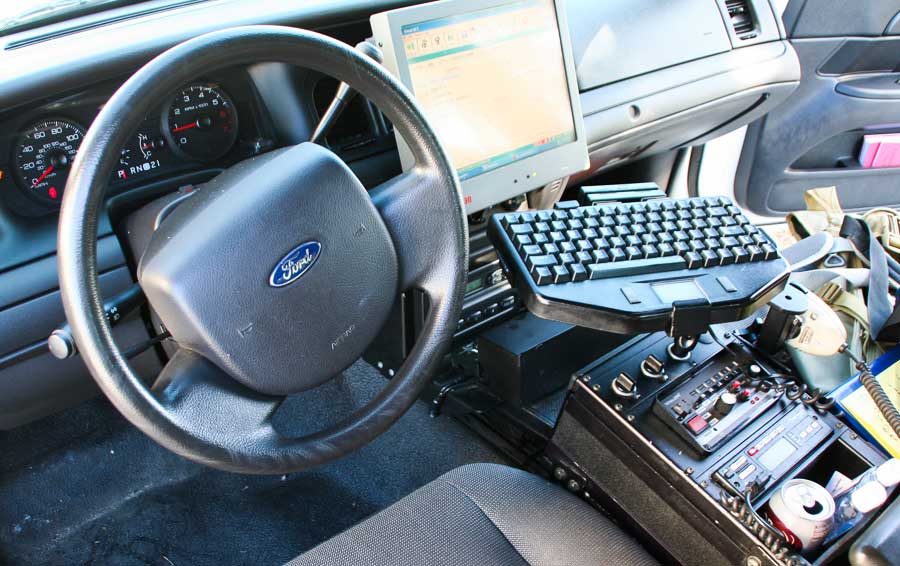
Many law enforcement agencies use some form of signals, codes and ten codes. If you work for an agency which relies heavily on the use of radio codes, you will likely encounter recruits who have difficulty in learning all of them.
In many cases, learning the codes and signals is an exercise of rote memorization. Depending on how many codes the recruit needs to learn, you can divide up the list and assign parts of the list for memorization in each of the first few weeks of training.
The recruit can then be orally quizzed while on the road. The FTO can also administer written tests on the codes. Several practice exams early in the week can help point out the recruit’s weaknesses which can direct his (or her) study. A final exam on the codes can be administered at the end of the week.
The recruit can also be encouraged to listen to his (or her) radio while at home. Listening to the language used on the radio can help give meaning to seemingly random numbers. Developing associations for the signals and codes can greatly aid in memorizing meaning.
If your agency does not issue radios which can be taken home, there are many Web sites which stream radio traffic. Additionally, there are applications for smartphones which perform the same function.
Spelling and Grammar Issues
Spelling and grammar are the two sides of the coin called written communication. Correct spelling and grammar are critical in relaying accurate information. A misplaced comma or missing period may radically alter the meaning of a sentence.
Misspelled words can create confusion or even alter the facts you are attempting to document.
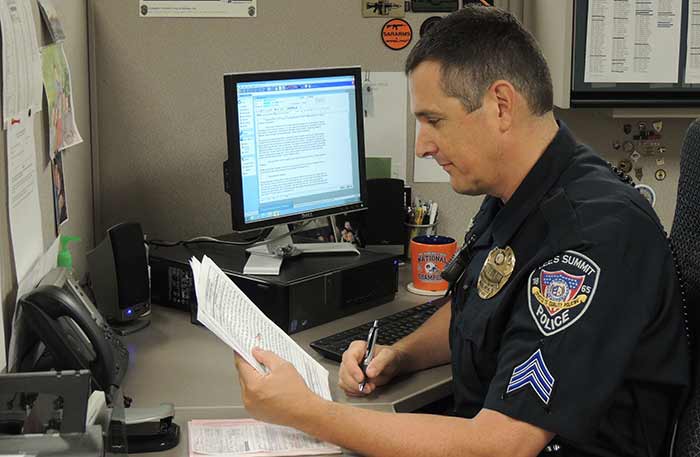
Basic writing skills, including spelling and grammar, should be part of the education any public school graduate receives. Sadly, my experience has taught me that even many college graduates have a tenuous grasp of essential spelling and grammar skills.
Here are a few ideas an FTO can use to help recruits achieve acceptable written reports:
Quizzes
The FTO can identify what words the recruit is routinely misspelling and turn them into a list. That list should be given to the recruit to study and the FTO can use the list to perform oral or written quizzes.
The key is for the training officer to stay on top of these. Daily testing is essential to improve this area. Testing doesn’t need to be written. In fact, I find that oral testing while driving around is great for reinforcing both the spelling and that you are committed to helping them learn. Back it up by a written test that can be included in their training file to show improvement.
Technology
Less than 20 years ago, distance learning was handled exclusively through the mail: A course was mailed to you, you studied the material, took a proctored exam locally and then mailed the course back. That’s all changed. There are many on-line resources available to the recruit for improving his (or her) spelling and grammar skills. One of these resources is the iTunes University.
iTunes University is part of the free iTunes computer application from Apple and it works on both Windows and Mac computers. The University section offers hundreds of thousands of files available for download. The classes range from the elementary school level through advanced college courses. Topics range from theology to science to art to foreign languages.
At the time of this writing, a search for “English grammar” found dozens of different classes on English composition and grammar topics. Any of these courses may be just what a troubled recruit needs to improve his (or her) writing.
Tutor
A recruit who is not able to write basic reports, and who is not showing signs of significant improvement, may need to seek out a tutor or an adult studies class. Department policies and union contracts may influence how this can be accomplished, but the field training program should be willing to assist the recruit in finding an outside tutor if needed. Of course, any costs should be on them or the department – not the FTO.
DUI Investigations
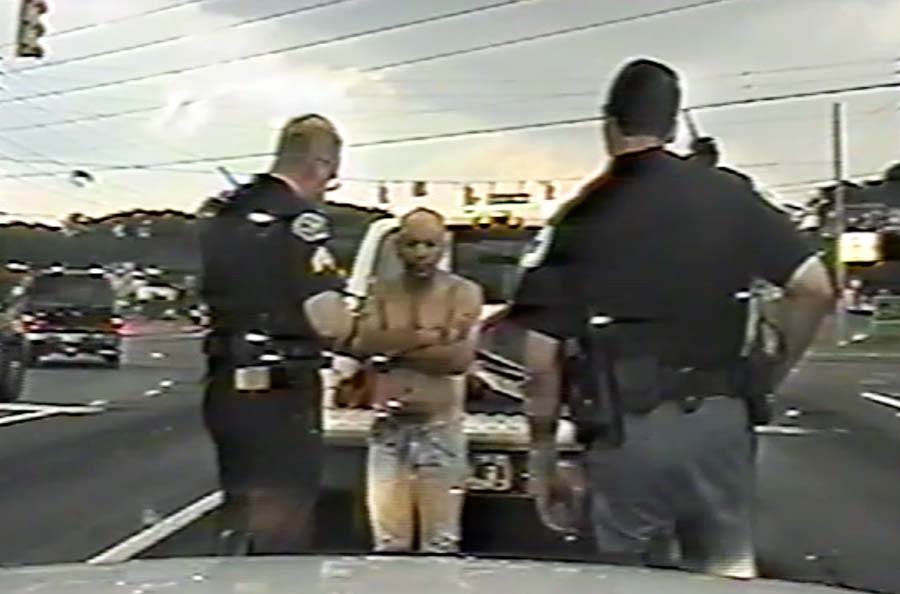
Driving Under the Influence (DUI), or drunk driving investigations are frequently difficult for new officers to learn. Each state has very specific laws and procedures related to the investigation and prosecution of these crimes. Learning all of the steps to a DUI investigation can be overwhelming.
Mock Investigations
Using other FTOs as suspects, have the recruit complete a DUI investigation in a controlled environment. Getting practice in conducting the investigation in a safe setting will help the officer recall the procedure in the field later.
For an officer who has a lot of problems with an investigation, start with the basics in a classroom. Have the recruit work through the standardized field sobriety tests until he is comfortable with the instructions and for what clues he should be watching.
Once the rookie seems to grasp the fundamentals, move out of the classroom to the parking lot. In the pseudo field conditions of the department parking lot, the new officer will now have the added realism of darkness, emergency lights, uneven pavement and an uncertain environment. These added variables would help the recruit once you get him back on the street with real suspects.
Checklists
Many agencies put together a checklist for reference when officers are investigating a DUI case. Providing the checklist to the recruit officer may help him to visualize the process.
Alternatively, have the recruit develop his own checklist as you instruct him. If the rookie officer develops his own list, he is more likely to commit the information to memory. It is very important that the FTO reviews the checklist to ensure everything is accurate and no steps are skipped.
DUI Unit Ride Along
If your agency has a specialized DUI unit, a recruit officer may benefit from a shift or two riding with them. Observing multiple DUI investigations can help burn the procedure into the new officer’s memory.
Additionally, experienced DUI officers typically get more court time than almost any other position. Those court appearances teach the DUI officer the nuances of building a solid case. The hard lessons learned in court can be passed on to the new officers which can help build their confidence.
The Bottom Line
Very few recruits are without hope. Most new officers can be taught how to do the job, assuming they apply themselves. We should give them every opportunity to succeed.
If a rookie officer is having problems, try tackling the problem from a different angle. Sometimes, just changing how the recruit looks at the problem can help them beat a mental block. Other times, building confidence through practice repetitions can get them over the hurdle. It is important to do everything you can to help that recruit learn the job.
Someday, they will respond as your backup. How well do you want your backup officer trained?
Editor’s note: I’m a huge believer in the field training and evaluation program concept. However, I know burnout is a real thing. If you’re dealing with morale issues in your field training program, take a look at our article on FTO burnout here. I encourage you to also read our articles on Selecting a Field Training Officer and the special challenges on Field Training for the Lateral Hire.